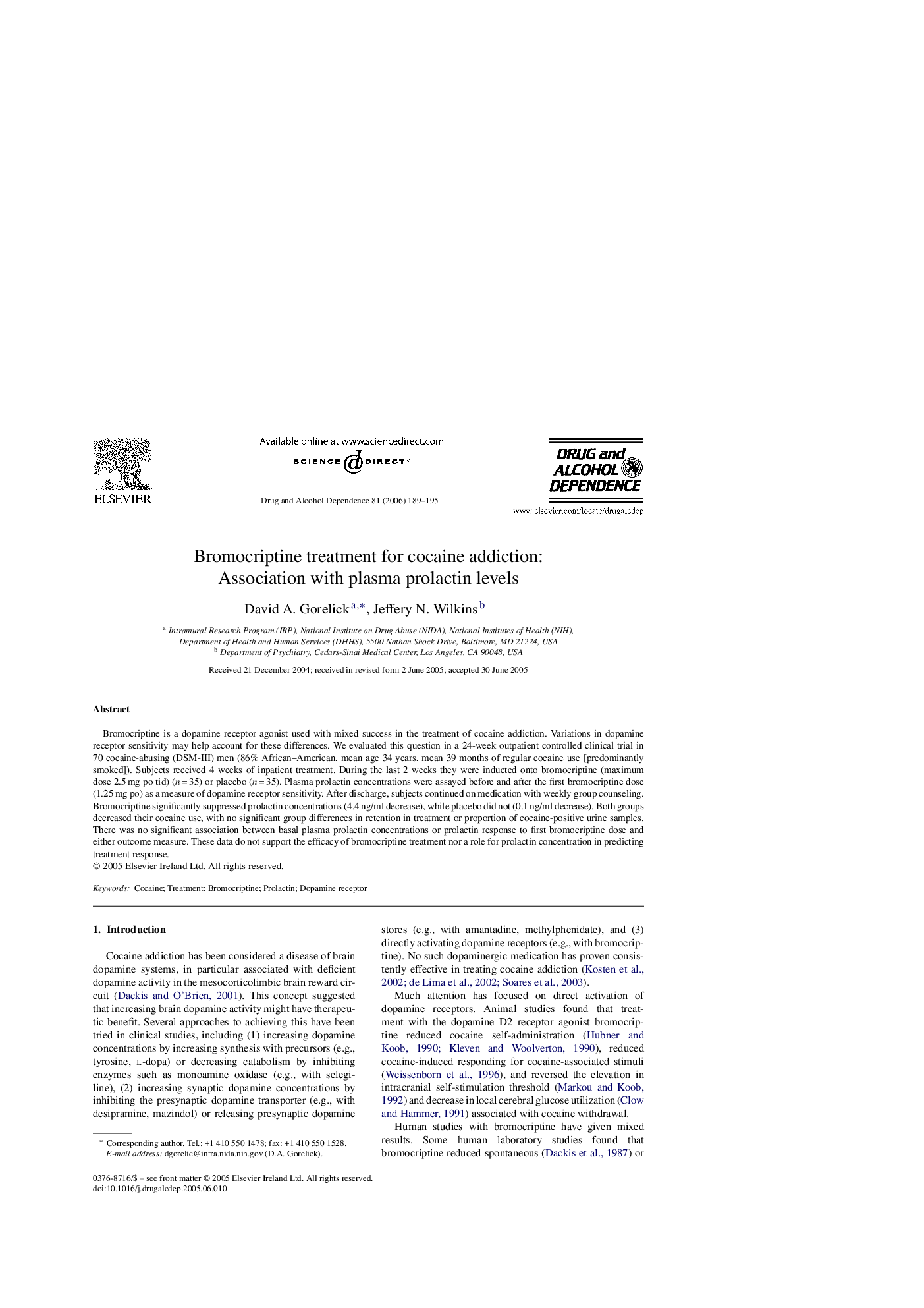| Article ID | Journal | Published Year | Pages | File Type |
|---|---|---|---|---|
| 1071905 | Drug and Alcohol Dependence | 2006 | 7 Pages |
Bromocriptine is a dopamine receptor agonist used with mixed success in the treatment of cocaine addiction. Variations in dopamine receptor sensitivity may help account for these differences. We evaluated this question in a 24-week outpatient controlled clinical trial in 70 cocaine-abusing (DSM-III) men (86% African–American, mean age 34 years, mean 39 months of regular cocaine use [predominantly smoked]). Subjects received 4 weeks of inpatient treatment. During the last 2 weeks they were inducted onto bromocriptine (maximum dose 2.5 mg po tid) (n = 35) or placebo (n = 35). Plasma prolactin concentrations were assayed before and after the first bromocriptine dose (1.25 mg po) as a measure of dopamine receptor sensitivity. After discharge, subjects continued on medication with weekly group counseling. Bromocriptine significantly suppressed prolactin concentrations (4.4 ng/ml decrease), while placebo did not (0.1 ng/ml decrease). Both groups decreased their cocaine use, with no significant group differences in retention in treatment or proportion of cocaine-positive urine samples. There was no significant association between basal plasma prolactin concentrations or prolactin response to first bromocriptine dose and either outcome measure. These data do not support the efficacy of bromocriptine treatment nor a role for prolactin concentration in predicting treatment response.
